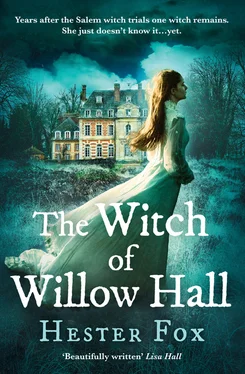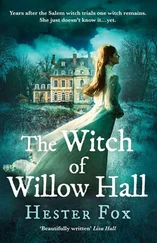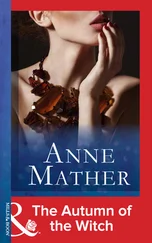Take this as a warning: if you are not able or willing to control yourself, it will be not only you who suffers the consequences, but those around you, as well.
New Oldbury, 1821
In the wake of a scandal, the Montrose family and their three daughters—Catherine, Lydia and Emeline—flee Boston for their new country home, Willow Hall.
The estate seems sleepy and idyllic. But a subtle menace creeps into the atmosphere, a remnant of a dark history that calls to Lydia, and to the youngest, Emeline.
All three daughters will be irrevocably changed by what follows, but none more than Lydia, who must draw on a power she never knew she possessed if she wants to protect those she loves. For Willow Hall’s secrets will rise, in the end…
Everyone is enchanted by The Witch of Willow Hall!
‘Beautifully written, with an intriguing plot full of suspense and mystery, The Witch of Willow Hall will cast a spell over every reader.’
Lisa Hall, bestselling author of Between You and Me
‘A wonderful debut novel.’
Linda Finlay, author of The Flower Seller
‘I hope Hester Fox goes on to write many more such novels. I for one will be buying them.’
Kathleen McGurl, author of The Girl from Ballymor
‘I love the novel, and will be looking forward to all new works by this talented author!’
Heather Graham, New York Times bestselling author
And readers have fallen under the spell too!
‘I could NOT put this thing down!’
‘The book pulls you in from the beginning with many twists and turns. I didn’t want to put it down, and could not wait to see what was going to happen next.’
‘Historical fiction with a side of romance and major helping of creepiness, this debut novel hits the mark!’
‘The ULTIMATE page turner!’
HESTER FOX comes to writing from a background in the museum field as a collections maintenance technician. This job has taken her from historic houses to fine art museums, where she has the privilege of cleaning and caring for collections that range from paintings by old masters, to ancient artefacts, to early American furniture.
She is a keen painter and has a master’s degree in historical archaeology, as well as a background in medieval studies and art history. Hester lives outside of Boston with her husband and two cats.
The Witch of Willow Hall is her debut novel.

Copyright

An imprint of HarperCollins Publishers Ltd
1 London Bridge Street
London SE1 9GF
First published in Great Britain by HQ in 2018
Copyright © Tess Fedore 2018
Tess Fedore asserts the moral right to be identified as the author of this work.
A catalogue record for this book is available from the British Library.
This novel is entirely a work of fiction. The names, characters and incidents portrayed in it are the work of the author’s imagination. Any resemblance to actual persons, living or dead, events or localities is entirely coincidental.
All rights reserved under International and Pan-American Copyright Conventions. By payment of the required fees, you have been granted the non-exclusive, non-transferable right to access and read the text of this e-book on-screen. No part of this text may be reproduced, transmitted, downloaded, decompiled, reverse engineered, or stored in or introduced into any information storage and retrieval system, in any form or by any means, whether electronic or mechanical, now known or hereinafter invented, without the express written permission of HarperCollins.
Ebook Edition © October 2018 ISBN: 9781474083737
Version: 2018-09-10
For Donna
(and Roland, too)
Not lost, but gone before .
Contents
Cover
Back Cover Text
Praise
About the Author
Title Page
Copyright
Dedication
Chapter 1
Chapter 2
Chapter 3
Chapter 4
Chapter 5
Chapter 6
Chapter 7
Chapter 8
Chapter 9
Chapter 10
Chapter 11
Chapter 12
Chapter 13
Chapter 14
Chapter 15
Chapter 16
Chapter 17
Chapter 18
Chapter 19
Chapter 20
Chapter 21
Chapter 22
Chapter 23
Chapter 24
Chapter 25
Chapter 26
Chapter 27
Chapter 28
Chapter 29
Chapter 30
Chapter 31
Chapter 32
Chapter 33
Chapter 34
Chapter 35
Extract
Acknowledgments
About the Publisher
1
1811
IT WAS THE Bishop boy who started it all.
He lived one house over, with his snub nose and dusting of freckles, and had a fondness for pelting stones at passing carriages. We were the same age and might have been friends, but he showed no interest in books, exploring the marshy fens of Boston, or taking paper kites to the Commons—unless of course it was the rare occasion of a public hanging. Catherine would sit in the window, watching him flee from angry coachmen, shaking her head. “That Bishop boy,” she would say. “It’s a wonder his pa doesn’t put a belt to him, the vicious little imp.”
I’d follow her gaze from the safety of the drapes, ducking back if I thought he might catch me looking at him. In my small, sheltered world the Bishop boy came to symbolize the murky edge of a larger evil of which I had no understanding. When Father lamented British aggression toward American ships, I imagined a fleet of freckled boys with sandy hair, identical in their blue coats as they drew their swords in unison. If there was news of a killer in the city, then he took on a slight frame, a shadowy figure with a snub nose protruding from his hood. The Bishop boy lurked around every dark corner, responsible for every terrible thing in the world that my young mind could not comprehend.
One day, Father—this was before he had made his fortune and he was still our “Pa”—found a little black cat under the steps at his office, and brought it home as a pet for Catherine and me with the stipulation that it wouldn’t come in the house. Catherine said she was too old to play nursemaid to a kitten, though sometimes when she thought I wasn’t looking I saw her sneak out to the stable with a bit of bread soaked in milk. This was before our little sister, Emeline, came along, so I was hungry for a companion, as Catherine and our brother, Charles, were practically joined at the hip. Every morning as soon as I could be excused from the breakfast table, I would rush out to the stable with a precariously balanced saucer of milk and a tattered hair ribbon that I had appropriated as an amusement for the cat.
It must have been spring, because I remember the heady scent of wet earth and lilacs as I emerged from the house into the garden, my heart light and happy to be free. To this day I can’t smell lilac without a pit hardening in my stomach. And it must have been a Thursday, because Mrs. Tucker who came on that day to teach us French was there; I remember later the way her severe black eyebrows shot upward, her thin lips that never did anything except press into a tight frown, thrown open forming a perfect O, emitting that awful scream.
Читать дальше














